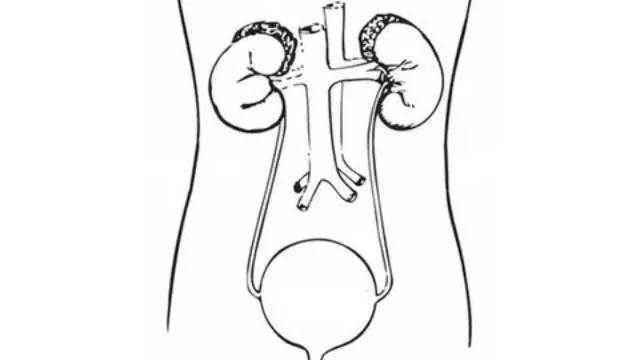
Breaking New Ground: Expert Panel Reveals Key Focus Areas in Metastatic Prostate Cancer Management
2025-04-23
Author: Arjun
Unveiling Consensus Recommendations
A cutting-edge panel of experts convened at the 2024 US Prostate Cancer Conference (USPCC 2024) to tackle the pressing challenges of metastatic prostate cancer (mPC) management. They utilized the modified Delphi process to forge consensus recommendations, pinpointing five critical areas of focus: biochemical recurrence (BCR), metastatic castration-sensitive prostate cancer (mCSPC), PARP inhibitors, prostate-specific membrane antigen (PSMA) radioligand therapy, and metastatic castration-resistant prostate cancer (mCRPC).
The Need for Customized Guidelines
Dr. Alan H. Bryce, Chief Clinical Officer and Professor of Medical Oncology at City of Hope, emphasizes the complexity of prostate cancer treatment. While existing guidelines from esteemed organizations like the National Comprehensive Cancer Network and the American Urological Association provide valuable insights, they often lack the nuanced answers required for the unique scenarios faced by many patients. This expert panel aims to bridge those gaps and offer tailored clinical guidance.
Structured Consensus: A Collaborative Effort
The consensus process involved a diverse group of 33 specialists from various fields of prostate cancer care, including medical oncology, urology, radiation oncology, and nuclear medicine. This multidisciplinary approach ensured a well-rounded perspective, especially with over 10% of the participants serving community settings. The group rigorously debated and voted on 85 critical questions, requiring a hefty 75% agreement for recommendations to be finalized. These discussions were critical in refining the consensus recommendations to represent the best available clinical approaches.
Addressing Ongoing Challenges in Treatment
The path forward in prostate cancer treatment is not without its hurdles. Dr. Bryce points out the urgent need for clear guidelines tailored to the various genetic profiles of prostate cancer. As patient responses to treatments can widely differ, developing targeted therapeutic paths for these distinct genotypes is an essential challenge that lies ahead.
Innovative Treatments on the Horizon
Current research is forging ahead with noncastrating treatment options, as patients seek alternatives to testosterone suppression. While bipolar antigen therapy is showing promise, true noncastrating solutions remain elusive. The potential of radioligand therapy continues to be a bright spot, with research exploring a broader range of isotopes and cell surface markers. These advancements could revolutionize how metastatic prostate cancer is treated.
Looking Toward the Future: Next Steps in Research
The USPCC is an ongoing initiative, with plans already underway for the third annual meeting. As new data emerges, the panel will delve deeper into areas such as biomarkers beyond homologous recombination repair. The landscape of metastatic prostate cancer is ever-evolving, and this expert panel is committed to staying at the forefront of research and treatment innovations.

 Brasil (PT)
Brasil (PT)
 Canada (EN)
Canada (EN)
 Chile (ES)
Chile (ES)
 Česko (CS)
Česko (CS)
 대한민국 (KO)
대한민국 (KO)
 España (ES)
España (ES)
 France (FR)
France (FR)
 Hong Kong (EN)
Hong Kong (EN)
 Italia (IT)
Italia (IT)
 日本 (JA)
日本 (JA)
 Magyarország (HU)
Magyarország (HU)
 Norge (NO)
Norge (NO)
 Polska (PL)
Polska (PL)
 Schweiz (DE)
Schweiz (DE)
 Singapore (EN)
Singapore (EN)
 Sverige (SV)
Sverige (SV)
 Suomi (FI)
Suomi (FI)
 Türkiye (TR)
Türkiye (TR)
 الإمارات العربية المتحدة (AR)
الإمارات العربية المتحدة (AR)